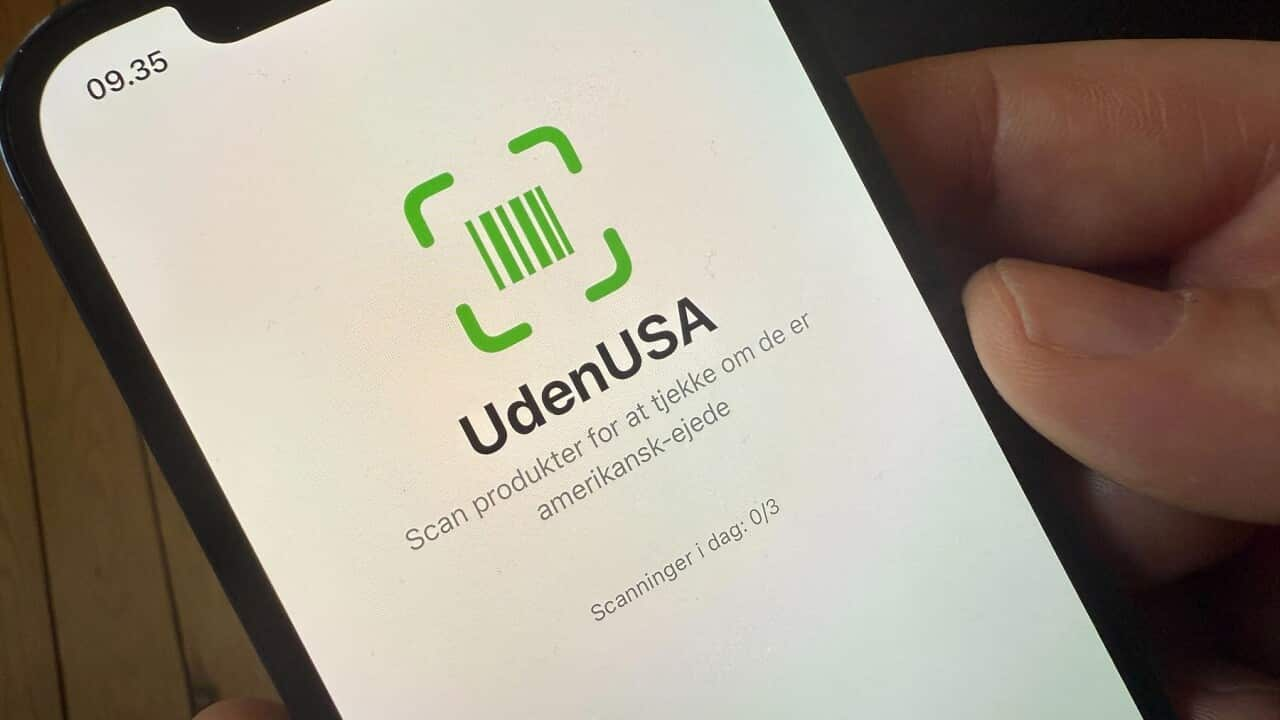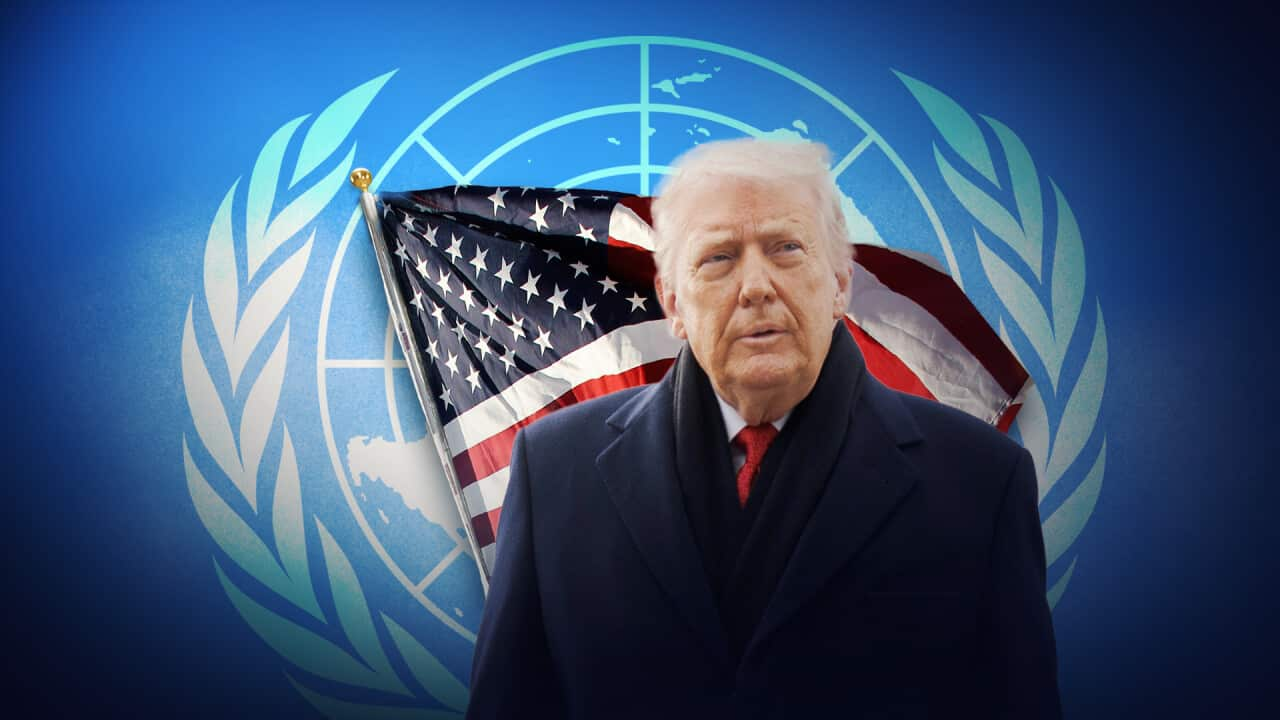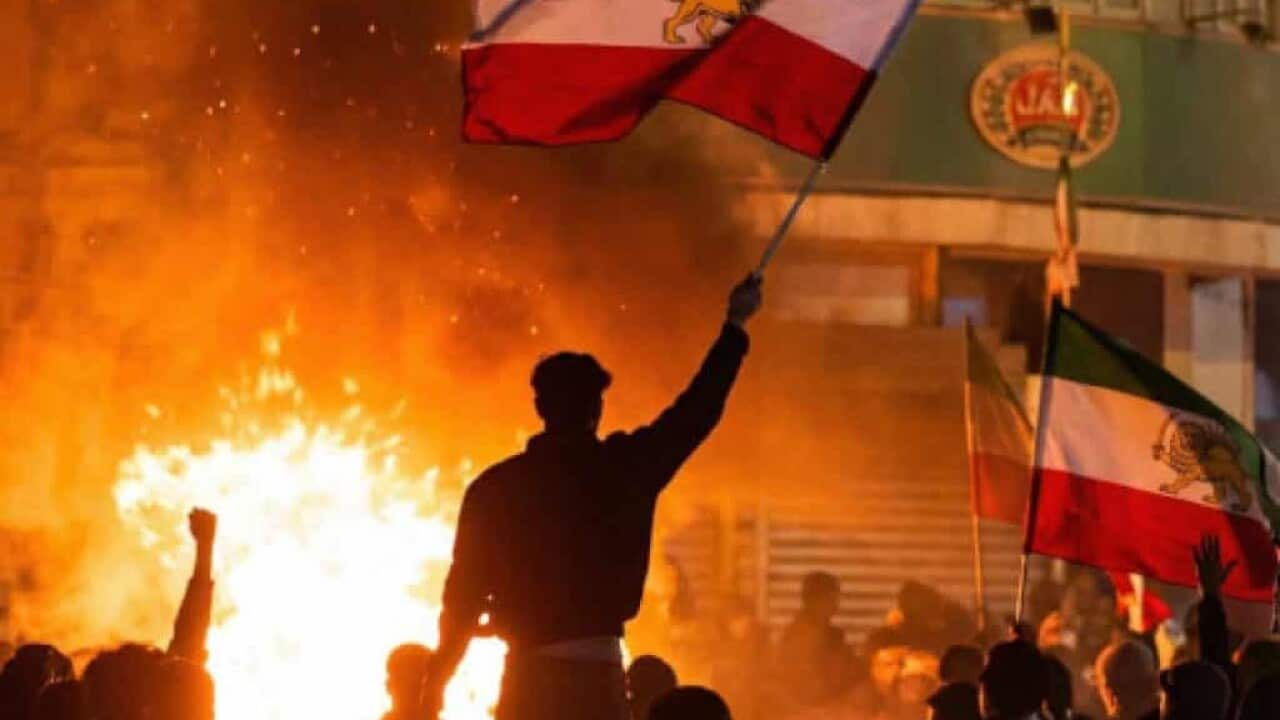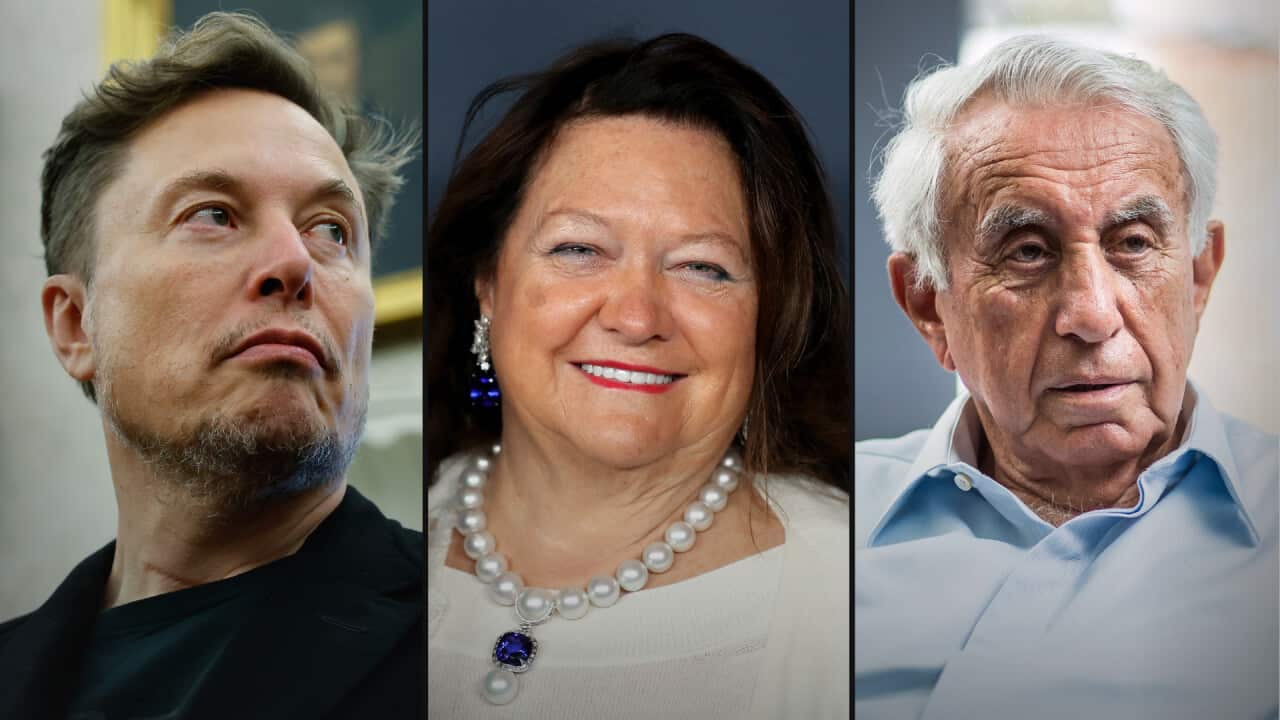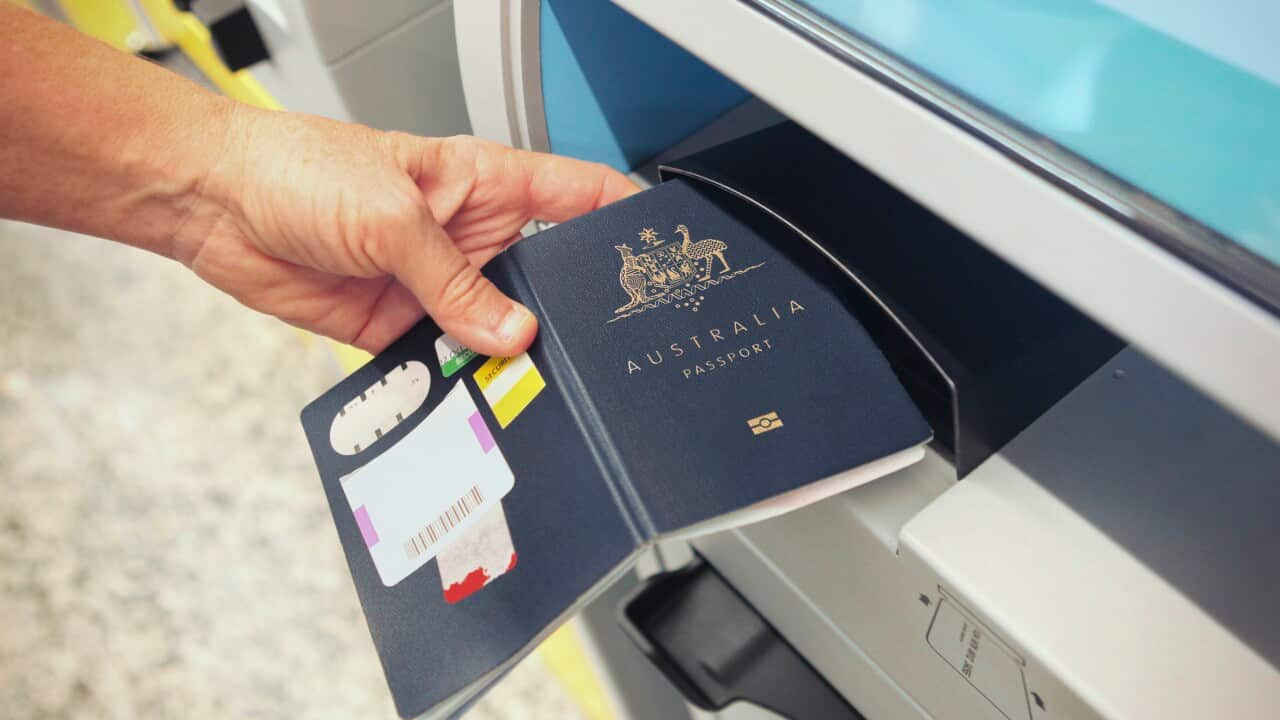Listen to Australian and world news, and follow trending topics with SBS News Podcasts.
TRANSCRIPT
At this point, it's a war of words between Iran and the United States, with the fighting between Iran and Israel on an indefinite hold.
Iranian Supreme Leader, Ali Khamenei, who has been in hiding since Israel began strikes on the nation, has emerged to claim Tehran has "won"- and given the US a "hard slap".
The ayatollah is scathing of what he says are trumped-up reports of the damage done by American attacks on Iranian nuclear facilities.
"The President of the United States made an unusual exaggeration in describing what had happened; it became clear that he needed this exaggeration. If aggression occurs, the cost for both the enemy and the protester will certainly be high.”
Fighting between Israel and Iran has halted - albeit with no formal ceasefire.
Iranian Foreign Minister, Abbas Araqchi said if Israel does not launch more attacks - his government won't either.
"We do not accept a ceasefire because a ceasefire itself is the product of negotiations. Or a cessation of operations, where the two sides negotiate, talk, for example, agree to stop. As I said that we do not accept any ceasefire, we do not accept the cessation of operations, but if the Zionist regime does not continue its attacks, we have no intention of continuing."
With fighting paused, Israel's airspace remains open.
Nearly 150 Australians were evacuated from Tel Aviv on government-assisted flights in recent days, with more expected to depart on commercial flights.
About 1,000 Australians have asked the government for assistance to leave Israel, with around 3,000 more waiting in Iran.
After three unsuccessful evacuation attempts, Mr Kedem spoke to SBS from Tel Aviv airport, where he finally awaits a flight home to reunite with his wife and two children.
He describes his fear while hiding out in a safe room in his family's home in Ramat Gan, east of Tel Aviv.
"In my neighbourhood, there was a rocket fell at 700 meter from me. And I was going in the same night to see the scene, to see how it goes because I have friends there and I was worried I want to help as much as I can. And what I saw, it was a war zone. I felt like I'm on the front of the line. The noise of the rocket fell. It was something that I never felt or hear before."
Meanwhile, the U-S and its defence hub - the Pentagon - are attempting to discredit a leaked intelligence brief, which reported the damage done to Iran’s nuclear facilities by American strikes this week as mostly superficial.
White House Press secretary Karoline Leavitt says the U-S mission will "go down in the history books" as an "overwhelming success."
“President Trump finally ended the immediate threat of a nuclear Iranian regime. Following President Trump's command, the most powerful military in the history of the world executed massive precision strikes on three of the Iranian regime's key nuclear facilities.”
Even within the US, there is no concensus on the impact of the attacks, which reportedly set back Iran's alleged nuclear armament by years - or mere months.
United States senators have been briefed by the President.
Republican Senator Tom Cotton referenced elements of the intelligence report, which included references to superficial damage to some infrastructure.
"I know everyone is very focused on what happened with the underground bunkers and what happened with some uranium canisters. But if you look at the whole span of what happened over 12 days, the targeting of Iran's nuclear scientists, the underground bunkers, the centrifuges, the centrifuge manufacturing sites, the gas to metal conversion sites, that's why we're confident - since all of those are single points of failure in an effort to get a nuclear weapon - that we have had an extraordinary success."]]
However Democratic Senator Chris Murphy says while damage has been done to the Iranian program, it is still operational and a potential risk.
"Listen, to me, it still appears that we have only set back the Iranian nuclear program by a handful of months. There's no doubt there was damage done to the program, but the allegations that we have obliterated their program just don't seem to stand up to reason. So obviously, I can't share any of the details from this briefing, but I just do not think the President was telling the truth when he said this program was obliterated."
Israel and the US say the attacks were to slow Iran's nuclear creation of nuclear weapons - while Iran maintains its capabilities have always been designed solely for civilian use.
Iran's parliament approved a bill on Wednesday to suspend cooperation with the IAEA, the United Nations' nuclear watchdog, after the US attack on its facilities.
And as Tehran examines the damage to its nuclear facilities, foreign minister, Mr Abaqchi, denies negotiations are underway over a nuclear proposal.
"Look, we were negotiating with America, Israel destroyed the table, then we were talking to Europe, the Americans destroyed it. So I say, those who say let's go back to the negotiating table should specify exactly which table they mean and with what specifications."
The official messaging is contradictory, but beneath the back-and-forth barbs being traded by Iran and the United States, CNN is reporting a draft nuclear agreement is underway.
Sources have told the outlet the US and Gulf nation partners are creating a deal to incentivise Tehran back to the negotiating table.
The leaked draft proposal, said to have been formed by White House Middle East Envoy Steve Witkoff with regional allies, would include a 30 billion-dollar program for Iran to produce nuclear energy for civilian purposes.
The deal would also reportedly include the lifting of crippling economic sanctions imposed on the country in recent years.


